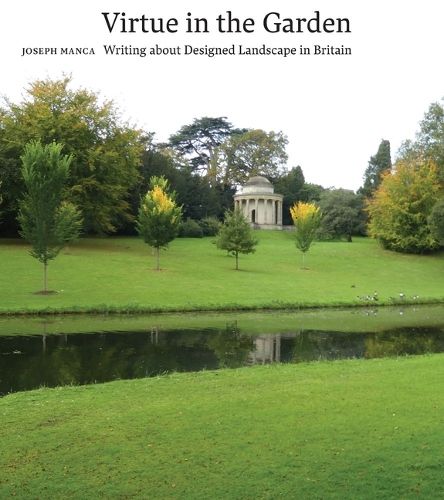Readings Newsletter
Become a Readings Member to make your shopping experience even easier.
Sign in or sign up for free!
You’re not far away from qualifying for FREE standard shipping within Australia
You’ve qualified for FREE standard shipping within Australia
The cart is loading…






Fine gardening flourished in Britain from Elizabethan times to the Victorian era and beyond. Along with the built accomplishments, an abundance of writing throws light on what designers, patrons, and visitors over the years thought about the moral meaning of gardens. Virtue in the Garden focuses on original, primary texts that expressed period aesthetic, moral, and political ideas. Throughout the centuries, spirited arguments took place about the meaning and value of gardens. Gardens are the only art form that one cannot move, and they remain part of a national geography. The British often expressed patriotic pride in their gardening, especially after the innovative establishment in the eighteenth-century of naturalistic landscape gardens by designers such as Capability Brown and William Kent. By the nineteenth century, landscape gardening itself faced opposition from a number of designers and writers who favored more traditional and formal ideas. While the chronological focus of Virtue in the Garden is on the late sixteenth to the early twentieth century, opening pages glance back at writings and gardens of Greco-Roman antiquity and the Middle Ages, and an epilogue looks briefly at some more recent moral trends in British gardens and public parks, with observations on the role of institutions such as the National Trust and English Heritage.
$9.00 standard shipping within Australia
FREE standard shipping within Australia for orders over $100.00
Express & International shipping calculated at checkout
Fine gardening flourished in Britain from Elizabethan times to the Victorian era and beyond. Along with the built accomplishments, an abundance of writing throws light on what designers, patrons, and visitors over the years thought about the moral meaning of gardens. Virtue in the Garden focuses on original, primary texts that expressed period aesthetic, moral, and political ideas. Throughout the centuries, spirited arguments took place about the meaning and value of gardens. Gardens are the only art form that one cannot move, and they remain part of a national geography. The British often expressed patriotic pride in their gardening, especially after the innovative establishment in the eighteenth-century of naturalistic landscape gardens by designers such as Capability Brown and William Kent. By the nineteenth century, landscape gardening itself faced opposition from a number of designers and writers who favored more traditional and formal ideas. While the chronological focus of Virtue in the Garden is on the late sixteenth to the early twentieth century, opening pages glance back at writings and gardens of Greco-Roman antiquity and the Middle Ages, and an epilogue looks briefly at some more recent moral trends in British gardens and public parks, with observations on the role of institutions such as the National Trust and English Heritage.